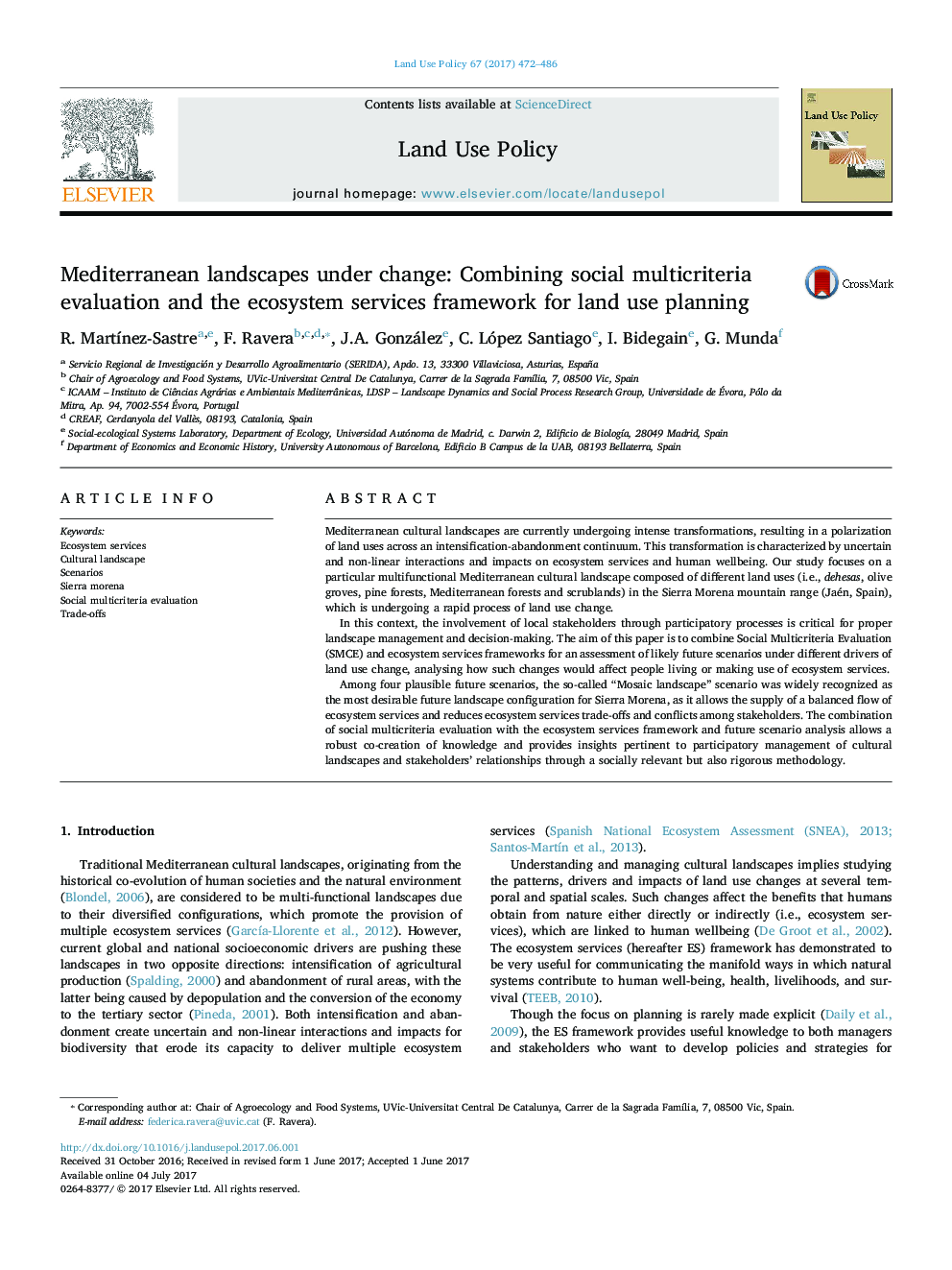| Article ID | Journal | Published Year | Pages | File Type |
|---|---|---|---|---|
| 6460708 | Land Use Policy | 2017 | 15 Pages |
â¢Social multicriteria evaluation provides insights for policy planning in threatened cultural landscapes.â¢Biophysical and social evaluations of ecosystem services provide different results.â¢A “mosaic scenario” of land uses appeared as the most desired scenario in terms of supplying multiple ecosystem services.â¢Combination of social multicriteria evaluation and ecosystem services framework is a highly promising tool to support co-creation of knowledge for decision-making.
Mediterranean cultural landscapes are currently undergoing intense transformations, resulting in a polarization of land uses across an intensification-abandonment continuum. This transformation is characterized by uncertain and non-linear interactions and impacts on ecosystem services and human wellbeing. Our study focuses on a particular multifunctional Mediterranean cultural landscape composed of different land uses (i.e., dehesas, olive groves, pine forests, Mediterranean forests and scrublands) in the Sierra Morena mountain range (Jaén, Spain), which is undergoing a rapid process of land use change.In this context, the involvement of local stakeholders through participatory processes is critical for proper landscape management and decision-making. The aim of this paper is to combine Social Multicriteria Evaluation (SMCE) and ecosystem services frameworks for an assessment of likely future scenarios under different drivers of land use change, analysing how such changes would affect people living or making use of ecosystem services.Among four plausible future scenarios, the so-called “Mosaic landscape” scenario was widely recognized as the most desirable future landscape configuration for Sierra Morena, as it allows the supply of a balanced flow of ecosystem services and reduces ecosystem services trade-offs and conflicts among stakeholders. The combination of social multicriteria evaluation with the ecosystem services framework and future scenario analysis allows a robust co-creation of knowledge and provides insights pertinent to participatory management of cultural landscapes and stakeholders' relationships through a socially relevant but also rigorous methodology.
Graphical abstractDownload high-res image (121KB)Download full-size image
